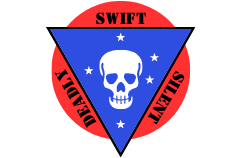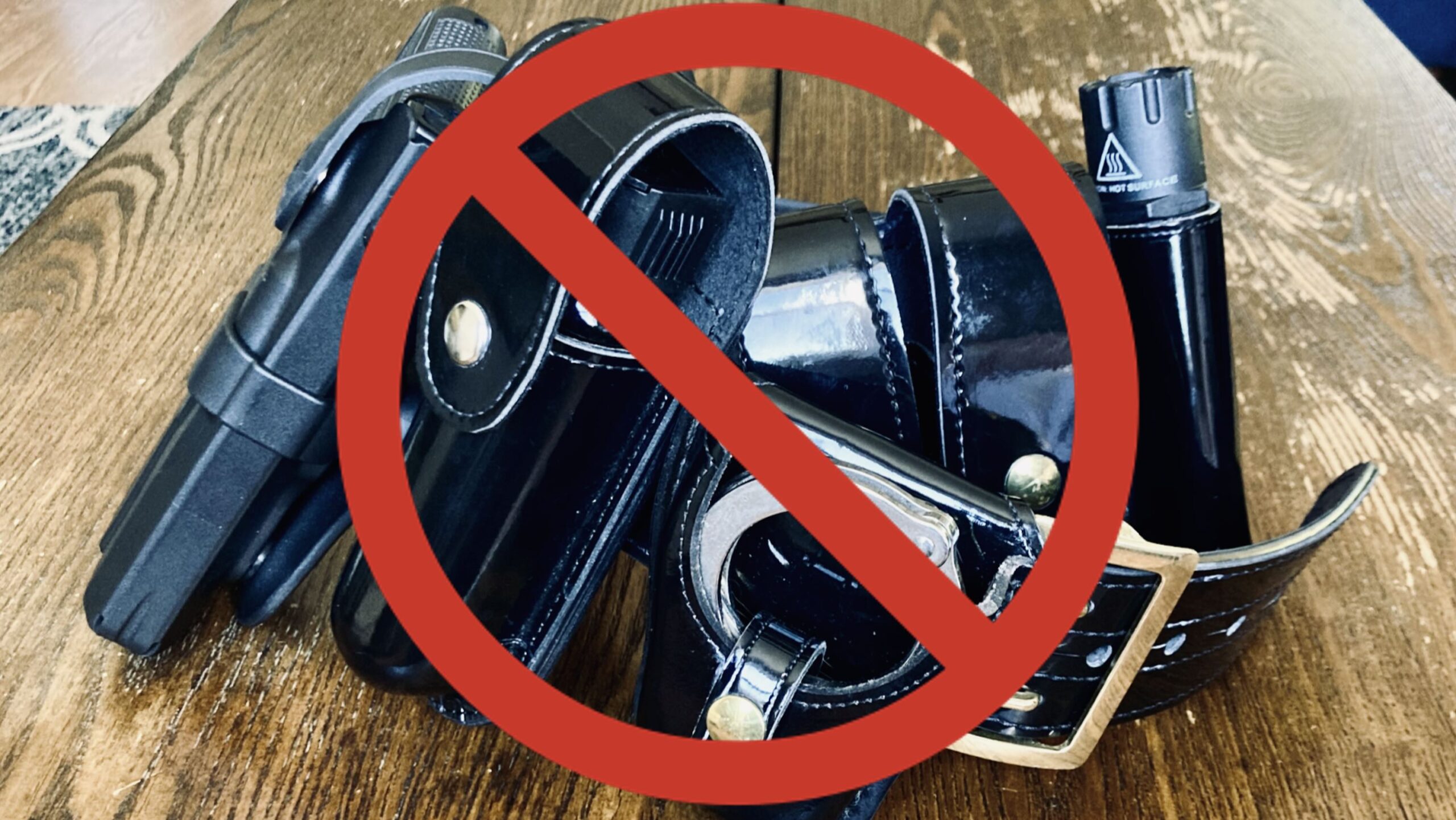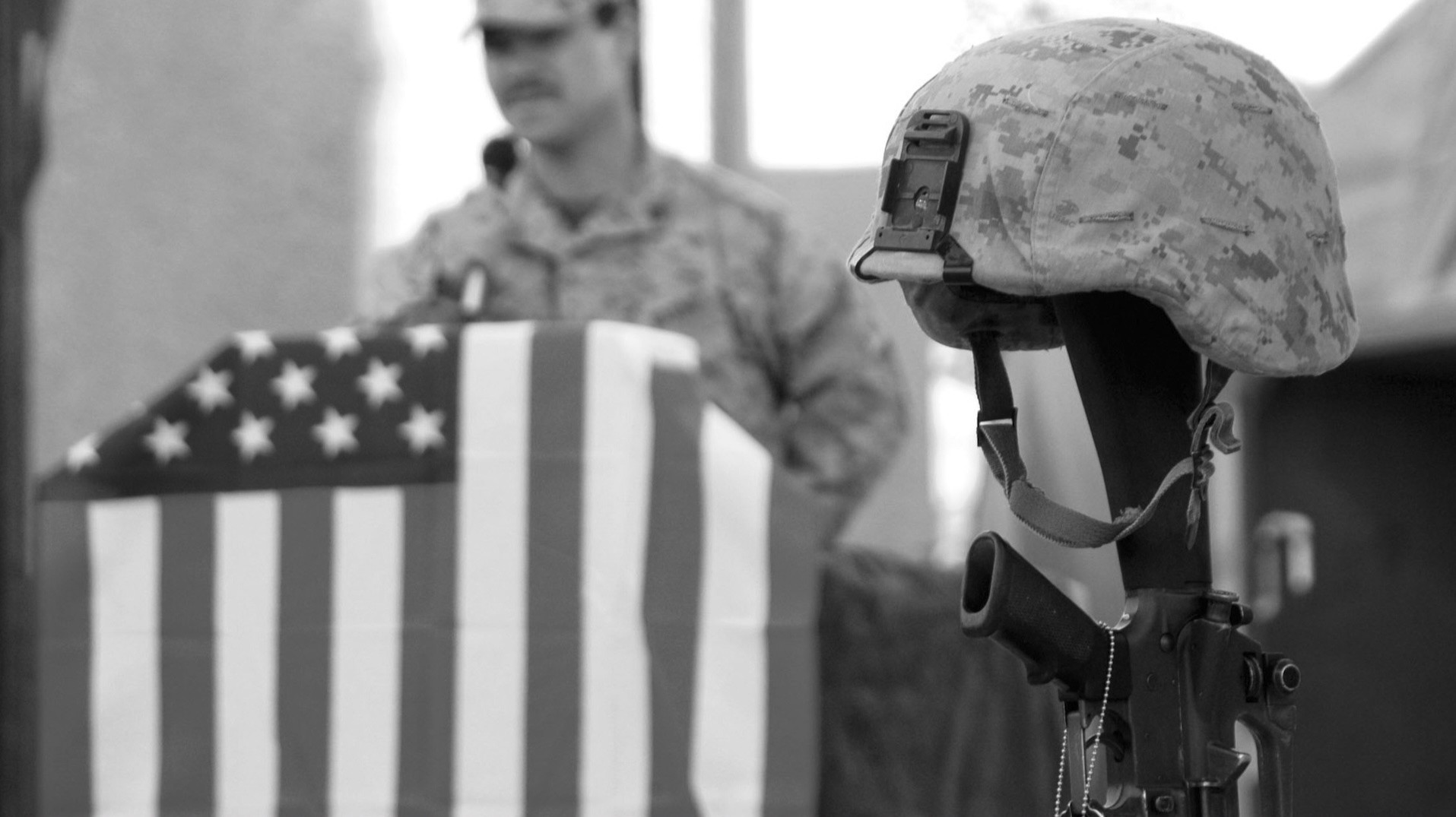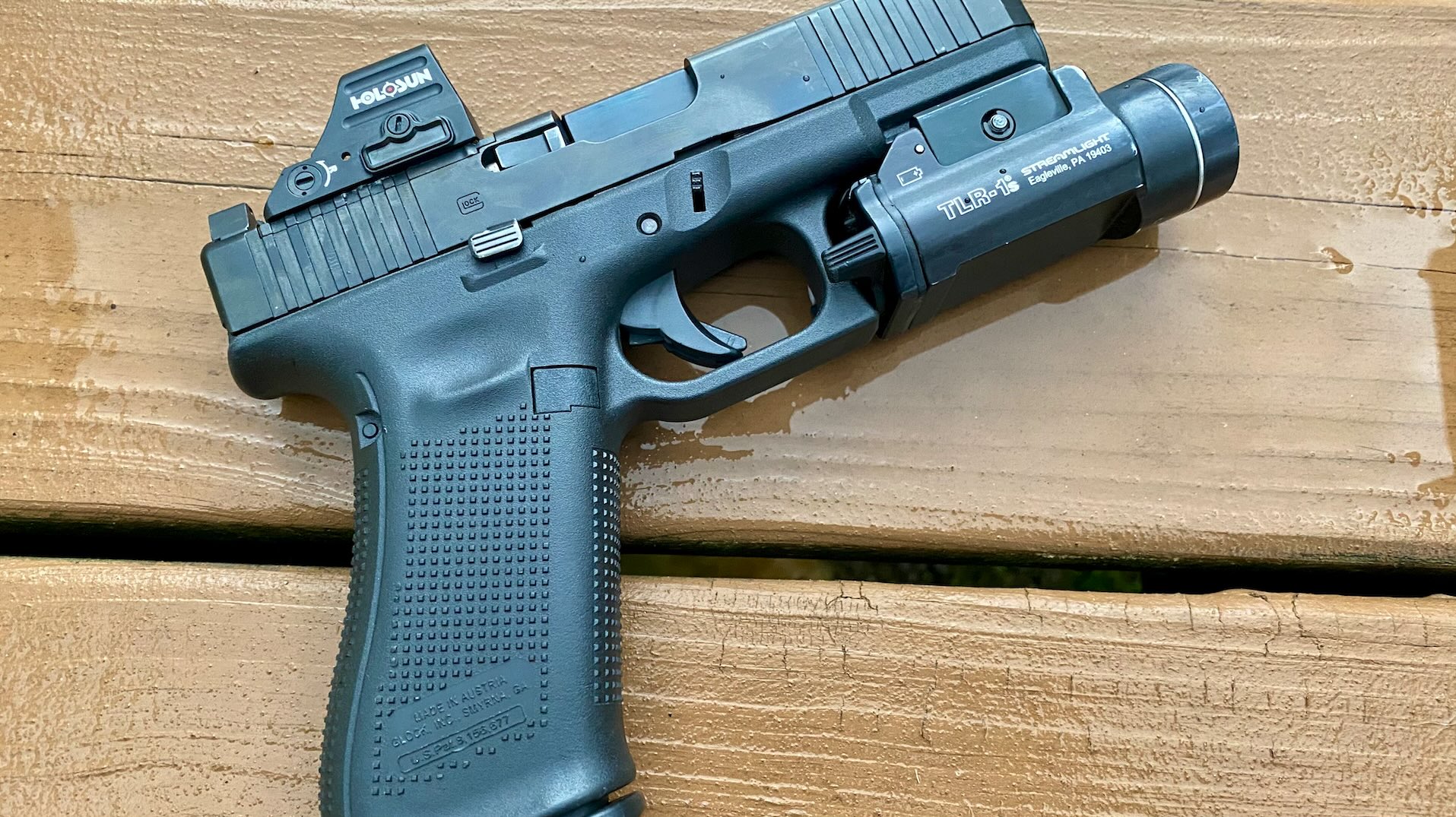I am one of those folks in a major disaster area in the Southeastern U.S. I thought I would share a dog’s-eye-view of what is going on and a few of my own experiences. Be advised that this is mostly an update for the myriad friends and family who have reached out asking how I’m doing. In the near future I will post more typical content in the form of some lessons to be (re)learned for those of you interested in preparing for such events.
Disclaimers
I am not naming my agency, their parent organization, or my county. I certainly do not speak for them. The opinions expressed here are mine and mine alone and do not represent any official position of the agenc(ies) for which I work or volunteer.
For the sake of privacy of those affected – and to further distinguish this from the official position of any emergency services organization – I have blurred road signs, faces, license plates, signage that would identify a specific business, etc. Additionally, I have avoided naming any specific localities.
This post is probably littered with typos, may have unfinished sentences, and may simply not make much sense. I have worked over 70 hours since Thursday evening (for those who don’t know me, I’m a paramedic, SAR team member, and water rescue team member). I am tired, and what little time off I have had has been spent sleeping.
Finally, photos are smaller than normal because they are slow/difficult to upload.
What Happened
Note: those of you outside the area may know more than I do; incoming news is very few and far between.
Tropical Storm Helene dropped an unprecedented amount of water upon our region. In some places as much as 15 inches of rain fell in just a few hours. In some places this wouldn’t be catastrophic. In our county the elevation changes about 4,000 feet. This means when rain falls, it is quickly channeled into valleys where it collects and runs downhill.
Large amounts of rain cause torrents of very fast-moving, powerful water capable of literally moving houses. Some of my buddies report seeing shipping containers, RVs, and small buildings slamming into walls at unbelievable speeds. This destroys homes, businesses, and infrastructure directly.
Very fast, powerful movement of water also destroys roads. When culverts and the areas under bridges become blocked, water flows over them, often taking the asphalt with it and replacing it with trees, mud, washing machines, propane tanks, and other debris. Sometimes the ground is simply washed out from under the road. Additionally, when the ground gets saturated in steep areas, water acts as a lubricant causing trees fall and landslides to occur. This can destroy homes, or just cut off access to them.
Bottom line: huge areas of our county were simply cut off from the rest of the world. Large swaths of the county lost electricity and water, much of which is still out. Many roads, including three of the four interstates leading into the area of cut off. Cellular and internet service were nearly non-existent for a couple days but is slowly coming back. It is almost impossible to express how much damage has been done. I just can’t begin to describe it and pictures don’t do it justice.
Day 1: Friday
Our county’s emergency management folks were really on the ball. Having suffered a similar storm just a few years ago, resources were requested early, voluntary evacuations were widely publicized, and EMS and fire stations plussed up their personnel. Everyone felt really ready. On Thursday night I went into work around 17:00 with the local Swiftwater rescue team.
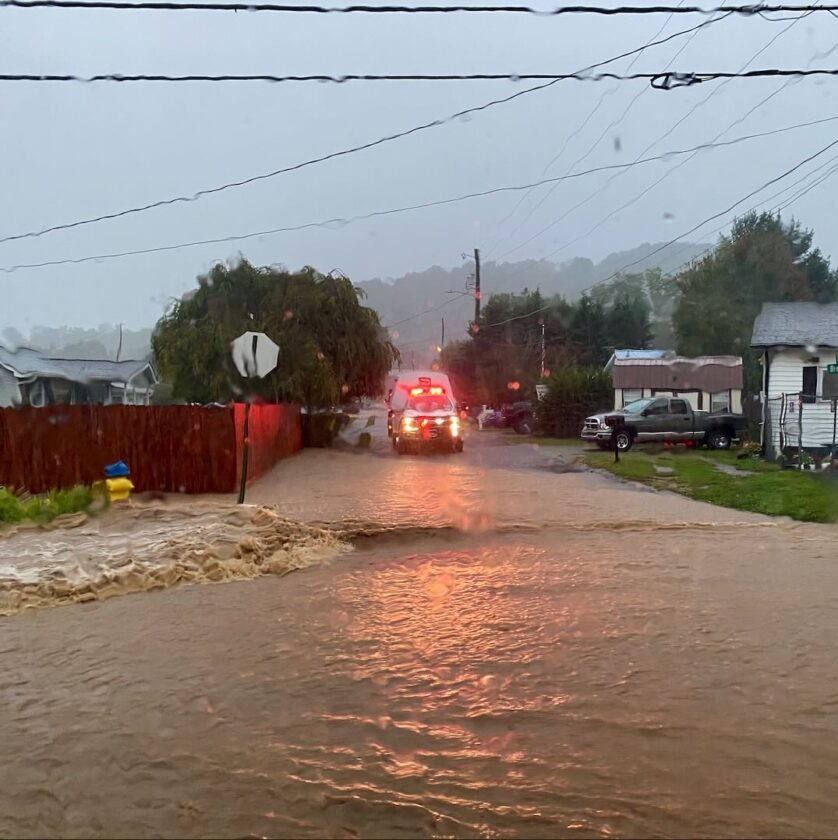
We spent the night prepping gear and fitfully trying to rest. At 0630 Friday morning we got the first call. We arrived as quickly as possible, detouring around downed trees and deeply flooded roads. Then the rescues began.
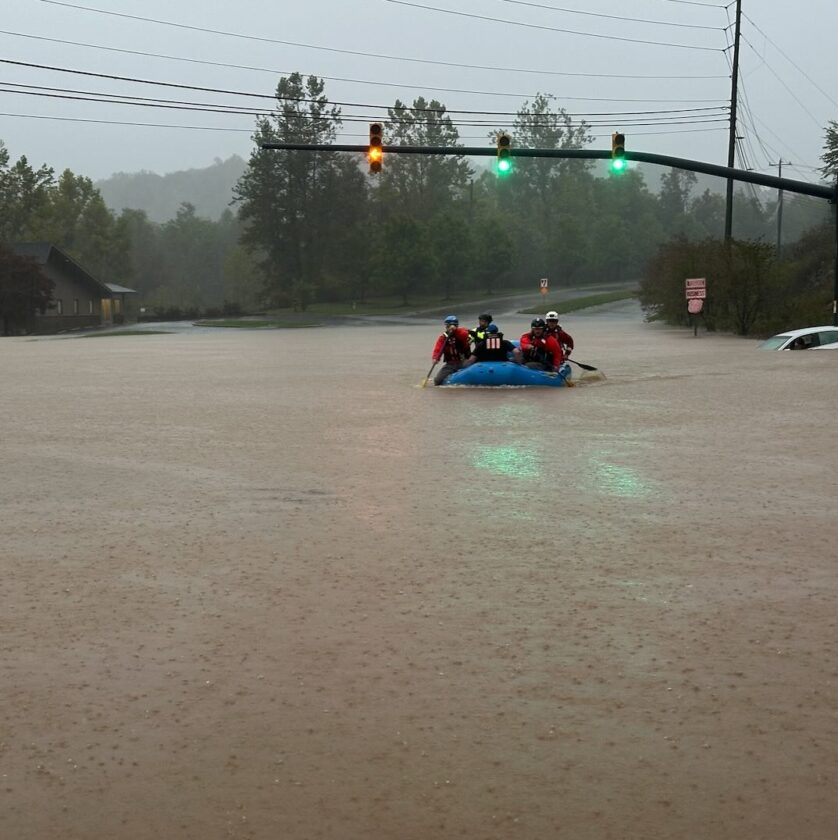
We helped clear people out of neighborhoods where streets had quite literally become rivers. Water ran through the streets with enough force to move fire engines. Our little group of two vehicles, three boats, and a dozen rescuers moved to various areas. We did all the stereotypical stuff, like getting people off the tops of cars, clearing out trailer parks and neighborhoods. I personally rescued one dog (named, I kid you not, Lucky) and still get choked up thinking about it. We pulled people out of the water for hours.
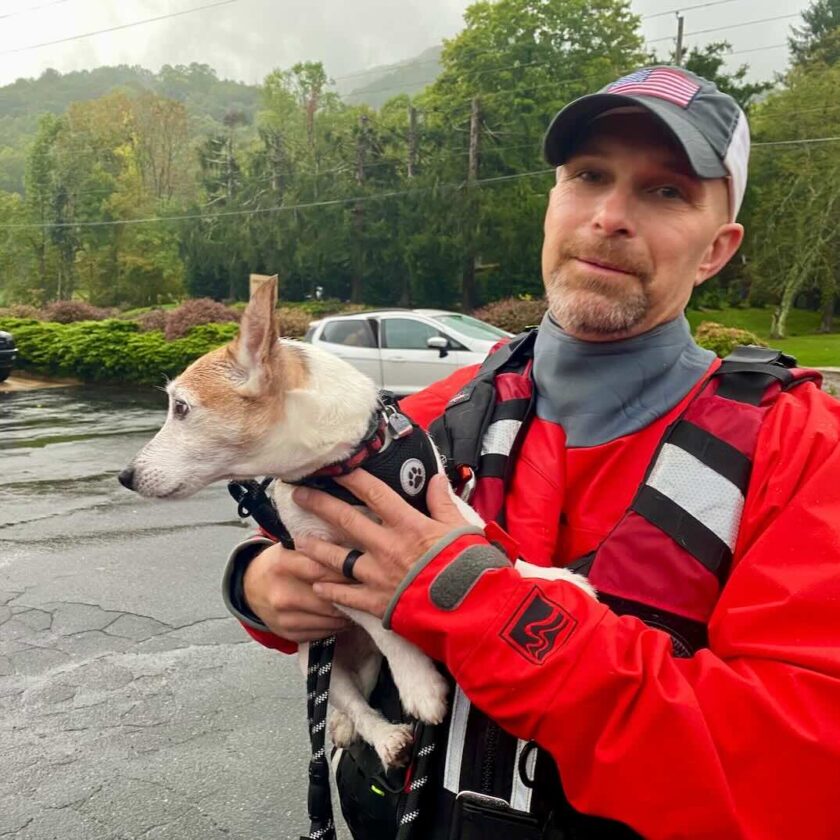
I left after 22 hours on the clock. When I got home I found my power was out which was not unexpected. My house was in good shape, however, which I am very thankful for. Most of my neighbors fared pretty well, too.
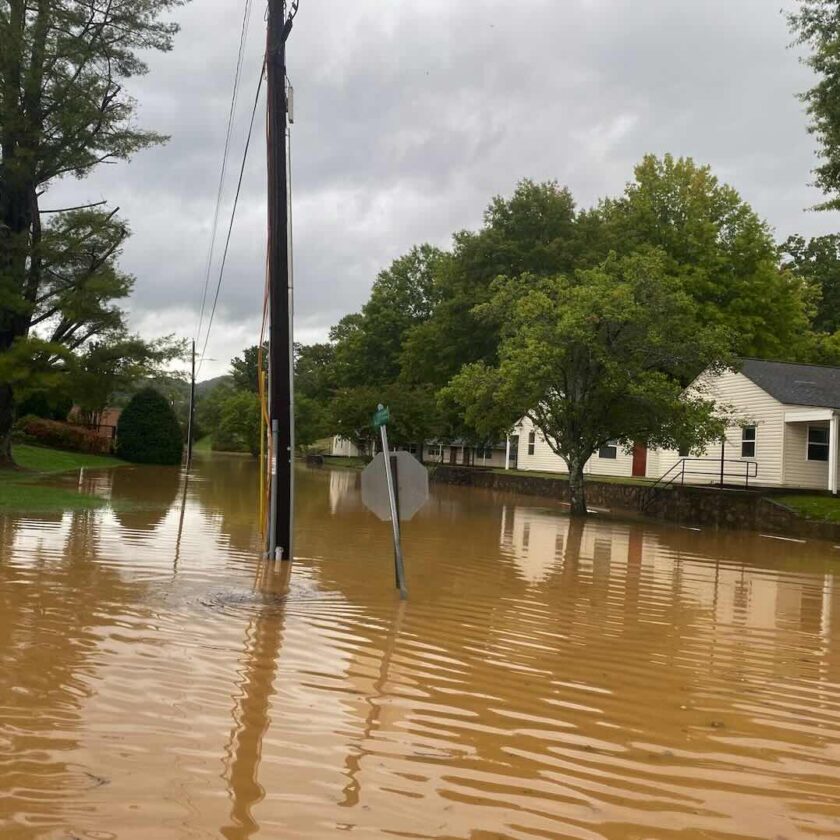
Day 2: Saturday
After a really good night’s sleep I went into work for what would end up being a 38-hour shift. On Saturday morning I got on an ambulance more or less doing my regular job. Except my first call involved picking my way over a mudslide and walking to a house at the top of a ridge. The caller wasn’t badly injured but the family did need to be evacuated. Their retirement home and two luxury cars are cut off from the world for months and possibly years.
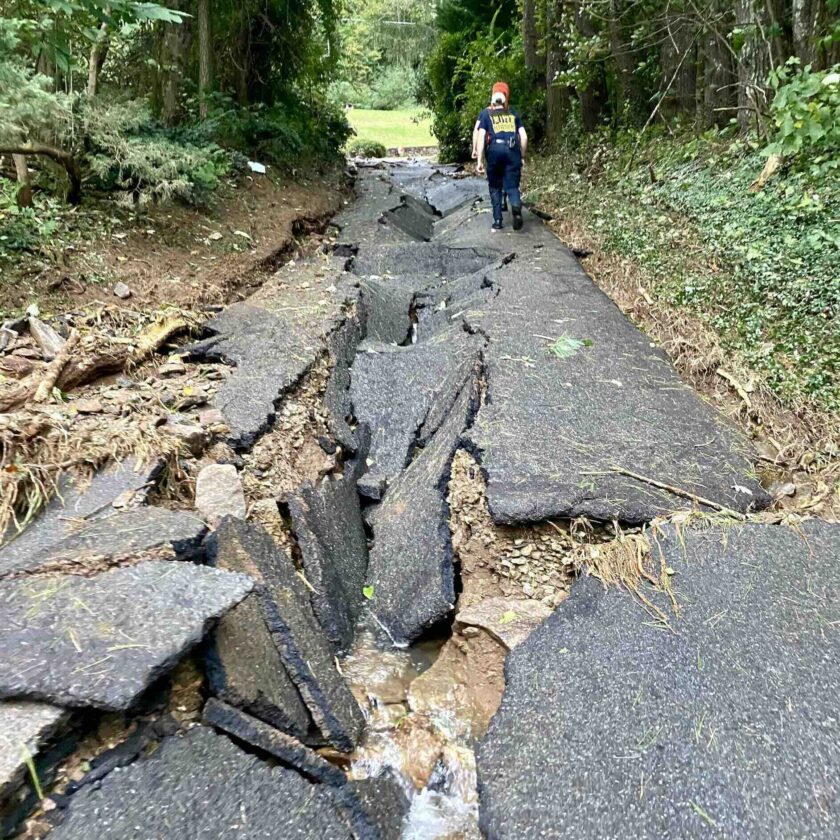
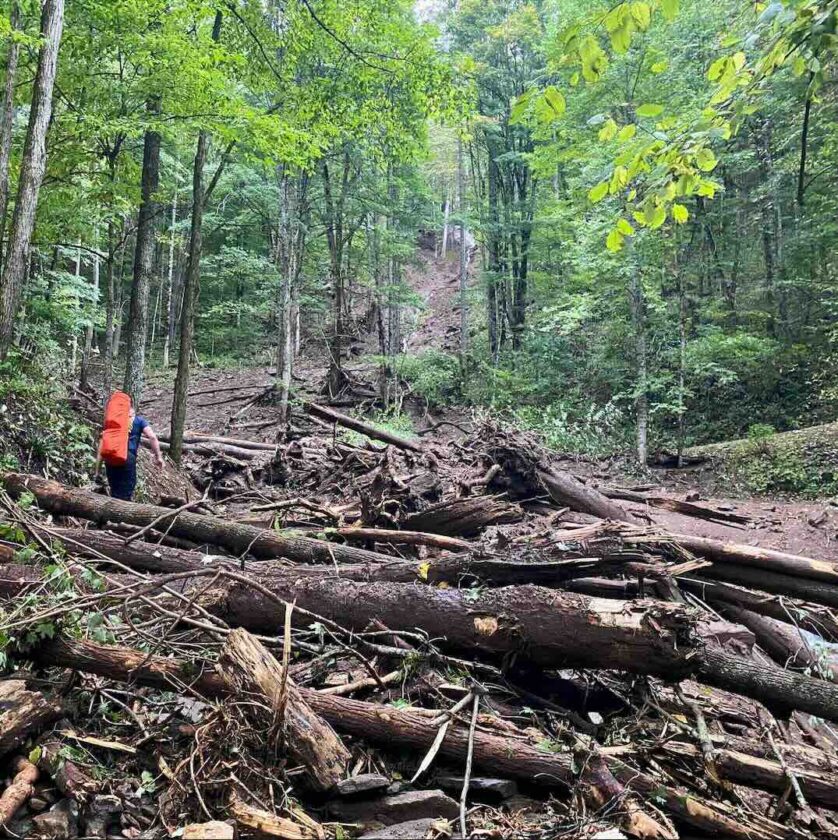
The lack of communication was frustrating, from a personal perspective. More importantly and on a larger scale, the loss of cell/internet killed credit cards. I’ve heard people say for years that when a disaster hits, cash is king. Guess what? It is.
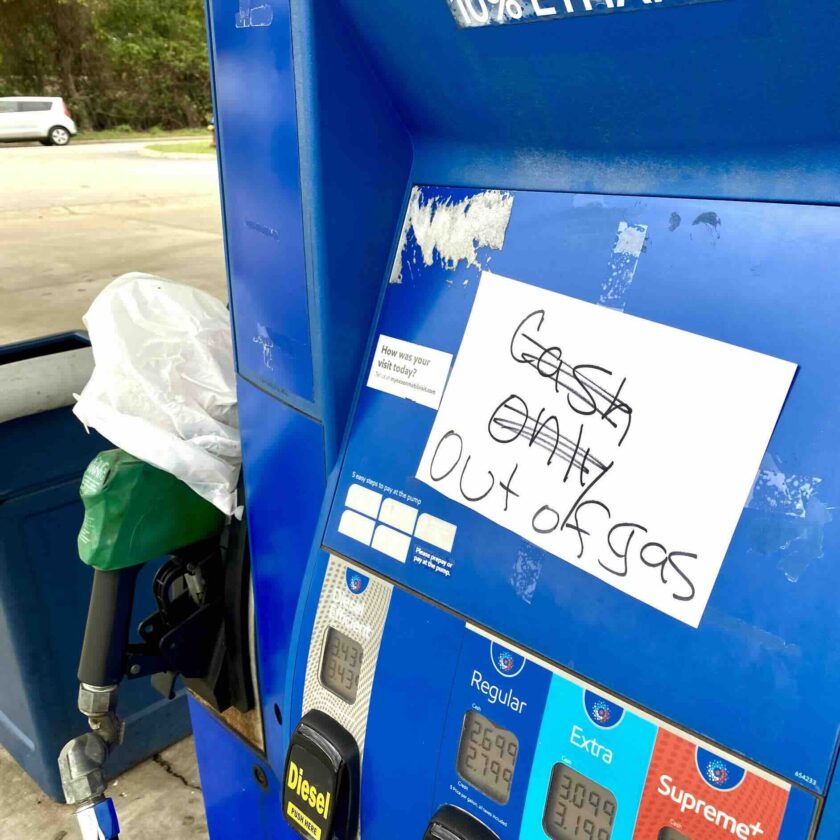
Lines at ATMs were very long…at least for the ATMs that worked. Many of them didn’t.
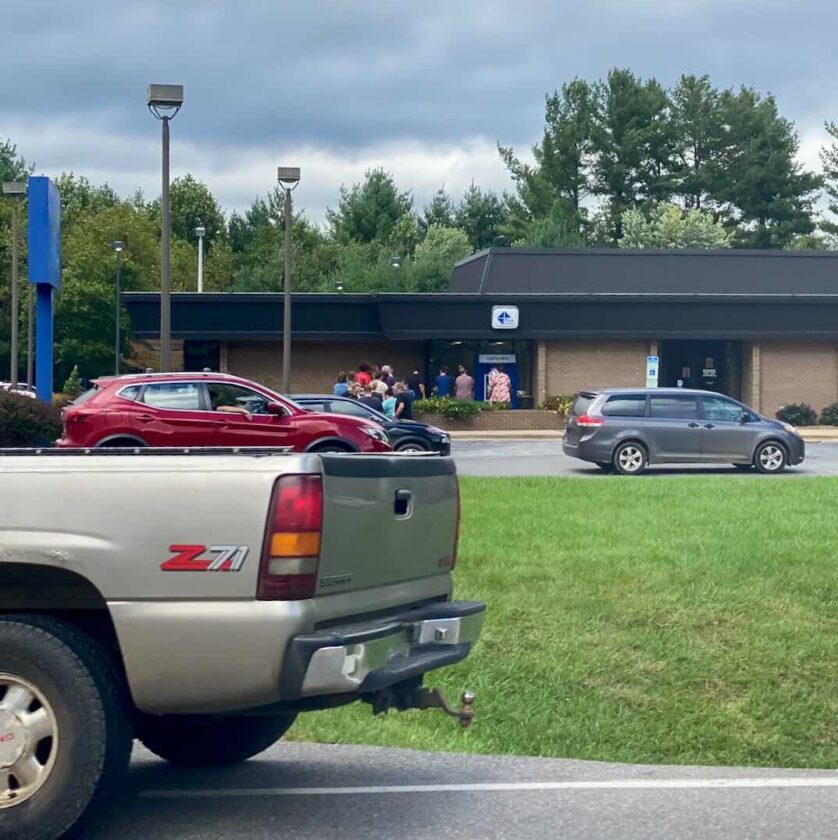
Lines for gas and food also got crazy on these days. Gas lines were the easiest thing to notice because they caused traffic problems. It was especially difficult for me to get back to our station in the ambulance because all the exits were jammed up with gas traffic.
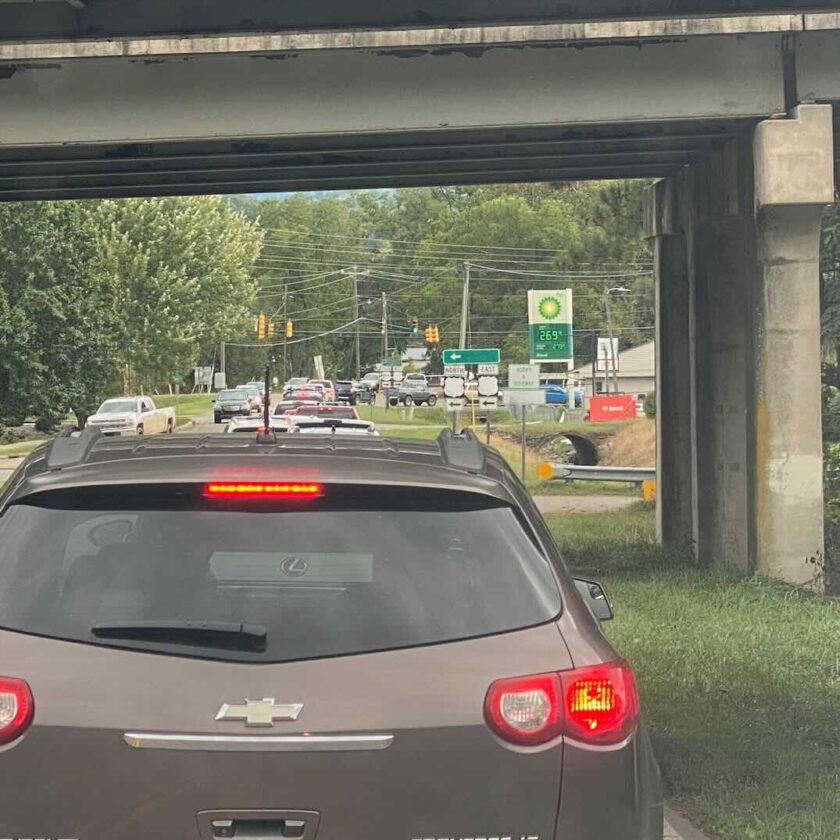
I walked over to a nearby grocery store to find very long lines. The store had been like this all day, but miraculously (in my opinion) there was still plenty of food on the shelf.
One side benefit of eating a relatively healthy diet is that many of the things I normally eat (fresh fruits and vegetables) were in pretty good supply. Fresh meat had been hit hard, but I wasn’t planning on doing much cooking anyway.
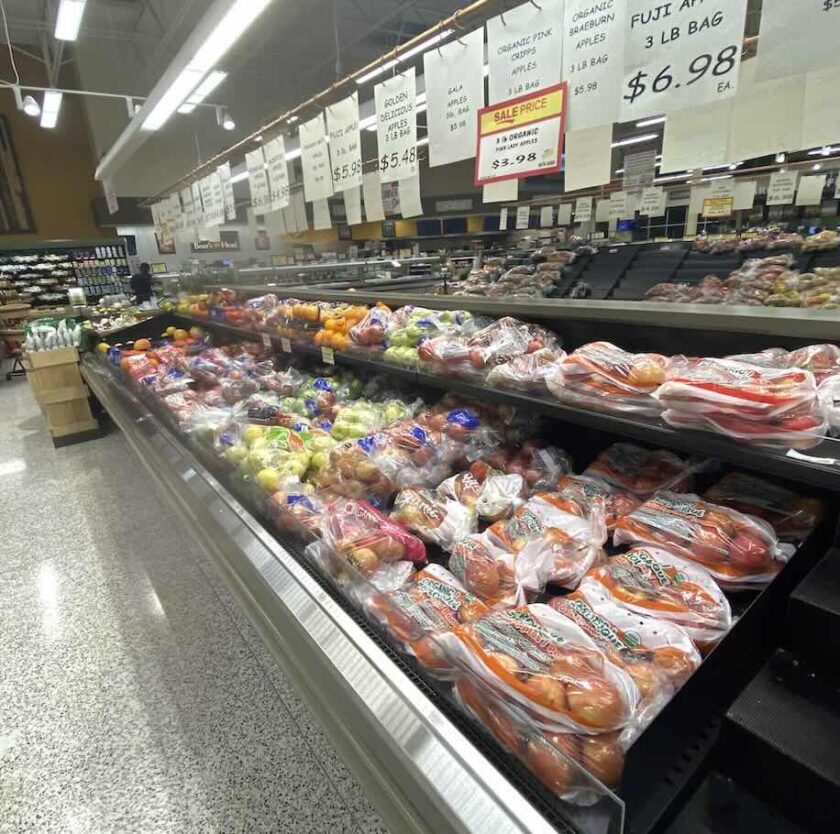
On the other hand, potato chips, cookies, sodas, Hot Pockets, and other junk food had been cleaned out. I guess people revert to what they are used to, and most Americans eat mostly garbage.
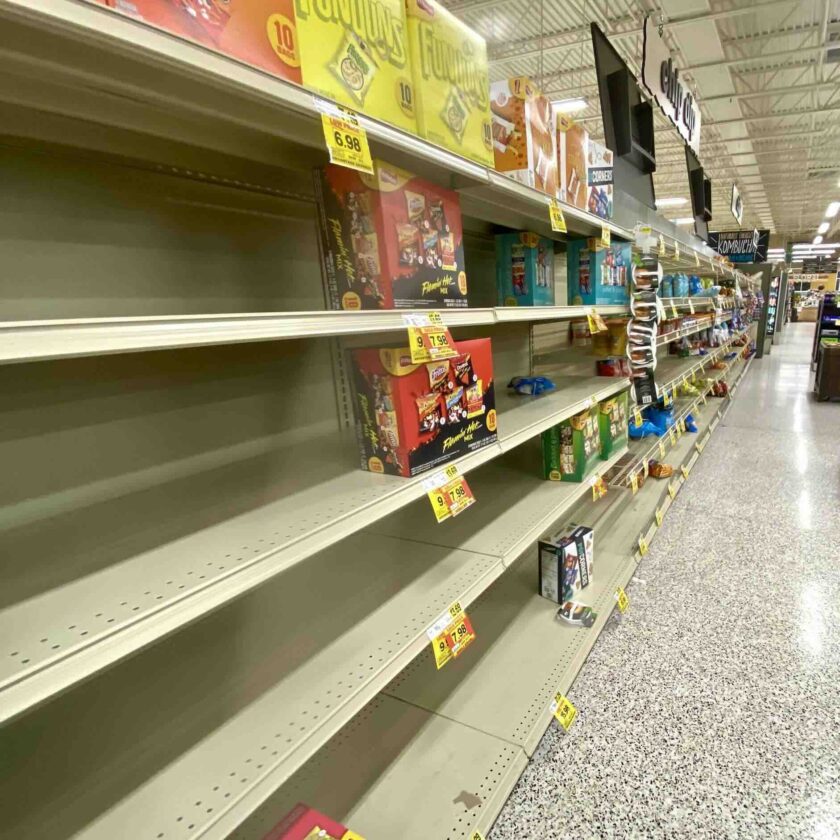
Day 3: Sunday
I stayed at work on Sunday and it ended up being a different day for me. Instead of being on a regular ambulance, I was put with an out-of-town crew. Ambulance “strike teams” were sent from around the state (and occasionally several states away). Each one had a local crewmember to show them where to go. Instead of running 911 calls, we were on standby for USAR (Urban Search And Rescue) teams that were going into uncontacted areas. This sounded fun, but we sat at a local fire department all day and did nothing.
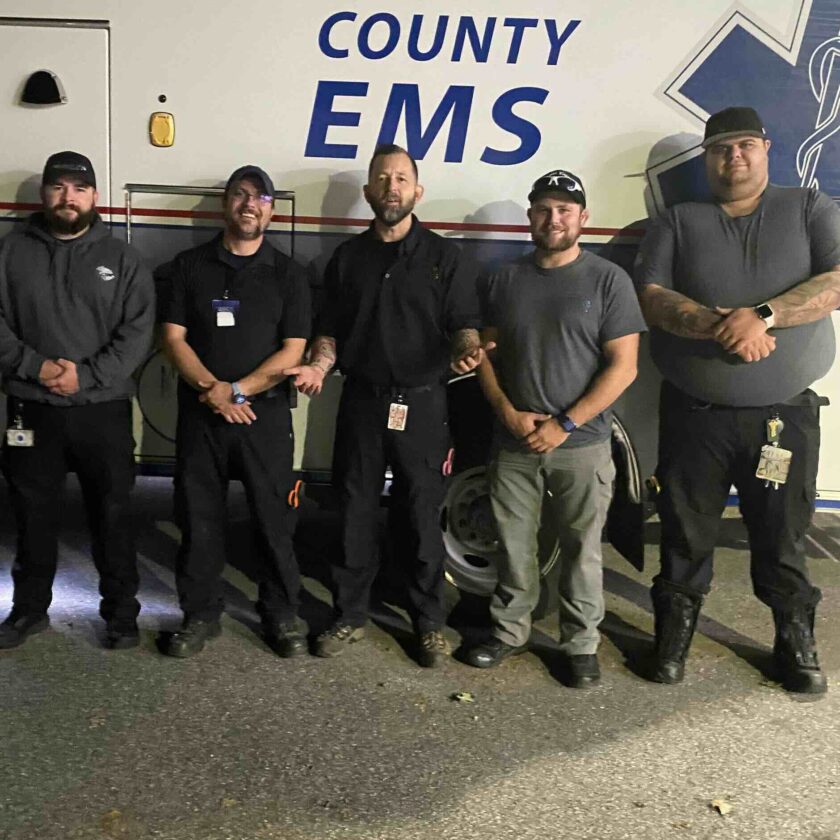
I did get to go into an area I had not yet seen and was astounded by the damage. After 38 hours at work I went home at 9 PM.
Day 4: Monday
I had not planned on working on Day 4. I wasn’t scheduled to work, but got up early anyway. I decided to go to the incident command center for the daily briefing…mainly because I had forgotten my coffee cup in the ambulance the day prior. I knew that crew would be there and I could get my cup back.
I saw several people from my SAR team and sat with them. I got included in their count, so decided to go out with them. Since we have various Search And Rescue outfits from other areas here helping, we were asked to fill water jugs, which we were happy to do. We followed a tanker truck to a central location in one of the towns in the county. From there we filled jugs until 6 PM.
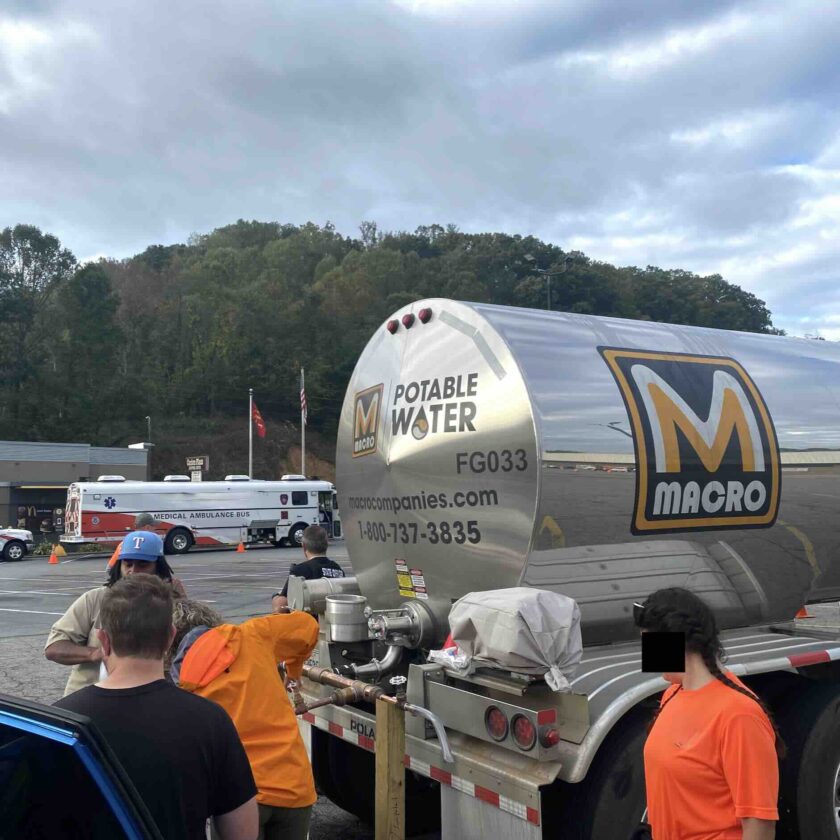
While there I ran a couple of medical calls in my POV. Several calls went out very close to my location. One was an ATV accident. A teenager had been thrown from an ATV onto asphalt and was reported to have a head injury. I rushed over there and ended up driving the ambulance in to our local hospital.
Keep in mind that this sort of injury would typically go to our regional trauma center. Under normal circumstances we would get in deep, job-jeopardizing trouble for taking this patient to the local hospital. Unfortunately, the trauma center is not taking any patients – no strokes, no heart attacks, no code traumas, no active labor, no nothing. I spent a good half hour in the trauma room with the doctors and nurses IO’ing this kid and helping to get him stabilized. Think about the insanity of this!
Day 5: Tuesday
So far I’ve been off for almost 24 hours, but I go in tonight for a 24, and will probably work 48 more hours this week.
To my regular readers: stay tuned for an article on all the experiential advice I can give you on how to prepare for an event like this.
